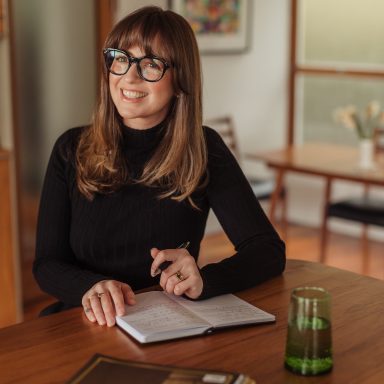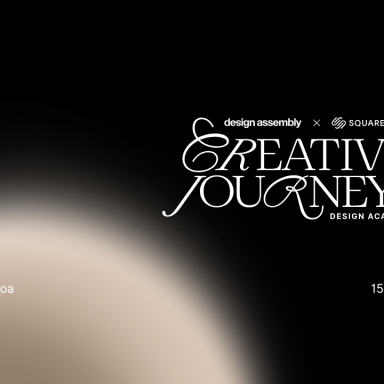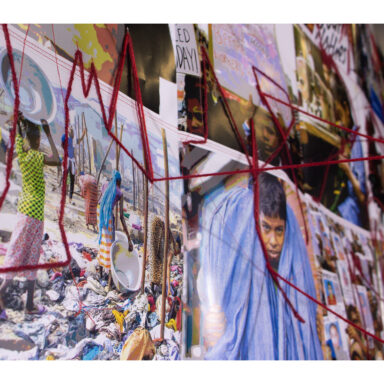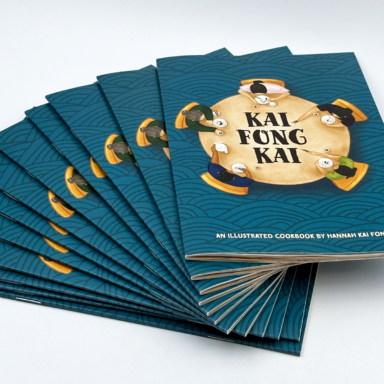5 minutes with… Dr Chandra Harrison
DA spoke with Access advisor, UX researcher and designer Dr Chandra Harrison about universal design, accessibility and what the design community can do to ensure their work is more inclusive. She is the Managing Director of Digital Accessibility for Access Advisors, an initiative of Blind and Low Vision NZ, helping organisations understand and implement digital accessibility.
—
Chandra will be delivering Digital Accessibility for Designers, a half-day workshop in both Christchurch and Auckland in early June. See below for further details.
What is your background and what lead you to Access Advisors?
My background is in human computer interaction and psychology, figuring out the human and the interface needs. Accessibility has permeated through my education and career with both my Masters and PhD thesis having accessibility at their heart. For many years I worked as a UX researcher and designer in the UK, specialising in Accessibility. When I returned to NZ many years later I started working for Blind Low Vision for Access Advisors as a contractor. Then, late last year they asked if I’d like to take over the consultancy and so I’ve been running Access Advisors as an independent digital accessibility consultancy since late last year.
Can you tell us about your career journey so far?
I started studying clinical psychology at uni 20 years ago but shifted focus to human technology interfaces when I saw how many people struggle with tech, especially those with people access needs. My Masters research explored the interface design of a low vision reading aid where I interviewed 50+ people with low vision. While at university I attended a guest lecture of Tom Furness who worked for NASA helping to improve the interface design and I realised that all the knowledge I had about human cognition, emotion and behaviour would be vital in that kind of environment. I moved to the UK to do my PhD and went on to do loads of consulting in accessibility in the UK, Europe and now back in NZ. My family and I returned to NZ almost six years ago and it was clear that there was little awareness of accessibility.
What does a typical working day as managing Director at Access Advisors involve for you?
It really depends on the clients your are working with that day. No two days are the same. Some days are onsite with clients at their offices; training, answering questions from various teams or doing reviews. Other days we might be doing reviews on websites from our offices identifying the issues and providing details to help the client solve them. Other days we work with companies to imbed accessibility into their strategy and processes doing workshops. And still other days we will be doing research with our panel, helping show clients what problems people with lived experience face when using their products. The common theme is working with clients to help them make things better for people with access needs.
What project, personal or professional, are you most proud of and why?
My first big accessibility project with PulseData 20 years ago for sure. I worked with about 50 older adults, all who were nervous about technology and had low vision. It was humbling to see how they struggled with everyday tasks that I took for granted and knowing that I was doing something to improve things for them. Working with the product team I helped improve the interface so users could read letters from their grandchildren and check their bank statement without having to rely on other people. It was very satisfying and made me want to help people even more.
What does good universal design look like to you?
It looks like good design. Good designers consider all users and design within the guidelines they have been given. When we stop talking about universal / inclusive / accessible design as being something different then we will final have achieved inclusivity.
How do you see the impact of bad design on people’s ability to participate in society?
Poor design can cause major barriers to participation in all aspects of life. People who are unable to access information online because of poor design will find it difficult to further a career, pay their utilities or shop. The impact is felt hugely by many people who use assistive technology to access the Internet. If the website or app isn’t designed properly they will have a poor experience at the very least and be completely blocked at the worst.
What are some of the key considerations designers should focus on to make their work more inclusive?
I could reel off the top ten things from the Web Content Accessibility Guidelines, but in my opinion the key consideration is for designers to think about all their users, not just the mainstream who are easy to design for. By considering different access needs designers can come up with innovative solutions. Designers should focus on understanding access needs and what that means for their product.
Do you have a dream project or collaboration you aspire to?
I recently did a review of a virtual human and it was eye-opening. My dream is to be working with the creators of digital humans, artificial intelligence and mixed reality to help ensure that future technology is more accessible than what we have now.
– – –
About the Digital Accessibility for Designers Workshop
Ensuring the accessibility of your digital products can feel daunting, especially when you’re already faced with budget constraints, pressure to deliver faster and unknown technical dependencies. But with strategic planning and a deeper understanding of accessibility, not only will your products and UX be better, but accessibility will exist as an integral part of your process.
This workshop will help you
- Explain who benefits from accessible design and how
- Understand why it matters from a legal, moral and business point of view
- Understand and identify ten top accessibility issues
- Apply the basic principles of accessibility
- Find resources to help build your knowledge
- Build the business case to prioritise accessibility efforts
Who is the workshop for?
- Digital Designers
- UX Designers
- Product Managers
- Marketing Managers
- Publishers
- Producers & decision makers
Prices:
$300+gst Professional | $200+gst Design Assembly Friend | $50+gst Student
(Not a DA Friend? Details on how to sign up can be found here).
CHRISTCHURCH
9:30am – 1:00pm, Thursday 3 June 2021
Spark Business Hub Christchurch, Unit 4b/166 Moorhouse Avenue
Register for Christchurch
AUCKLAND
9:30am – 1:00pm, Thursday 10 June 2021
Spark Commercial Bay, Cnr Queen Street & Custom Street West
Register for Auckland





